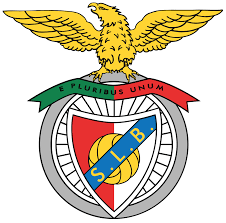Benfica FC is one of the most iconic football clubs in Portugal and has established itself as a symbol of excellence, passion, and resilience in European football. Known for its passionate fan base, storied history, and illustrious list of achievements, Benfica FC continues to be a beacon of Portuguese sporting pride. In this comprehensive exploration, we delve into the club’s origins, monumental successes, legendary players, and its enduring influence on the world stage.
The Origins of Benfica FC: A Humble Beginning to a Football Powerhouse
The story of Benfica FC begins in the late 19th century, rooted in a desire to establish a club that would embody community spirit, athletic excellence, and national pride. Founded in 1904 in Lisbon, the club soon grew from a local amateur team into a professional powerhouse that would dominate Portuguese football and leave an indelible mark on international competitions u888.
Founding and Early Years
Benfica FC was officially founded on February 28, 1904, by a group of young enthusiasts led by Cosme Damião, whose vision was to foster sportsmanship and unity. Initially, the club’s activities were focused on promoting various athletic disciplines, but football quickly became the primary focus due to its rising popularity across Europe.
In its infancy, Benfica faced numerous challenges including financial constraints, limited infrastructure, and stiff competition from other Lisbon-based teams. Nonetheless, the club’s emphasis on youth development, community engagement, and competitive spirit helped it gradually gain recognition. By the early 1910s, Benfica was participating in local tournaments, steadily building its reputation.
The Club’s Growth and Development
As the years progressed, Benfica invested in better facilities, recruited talented players, and established a robust organizational structure. The club’s philosophy of nurturing homegrown talent over importing players became a cornerstone of its identity. This approach not only fostered loyalty but also ensured sustainable success.
During the 1920s and 1930s, Benfica began to dominate domestic leagues, winning multiple regional titles and establishing a winning culture. The construction of the Estádio da Luz in 1954 marked a significant milestone, providing a modern home for the club and enabling larger crowds to witness their matches.
Cultural Significance and Community Impact
Benfica’s growth paralleled Portugal’s socio-political developments, often serving as a unifying force amid political upheavals. The club’s supporters, known affectionately as “Águias” (Eagles), Benfica FC considered Benfica more than just a football team—they saw it as a symbol of national identity and pride. The club’s commitment to social causes and community development further cemented its place in Portuguese culture.
